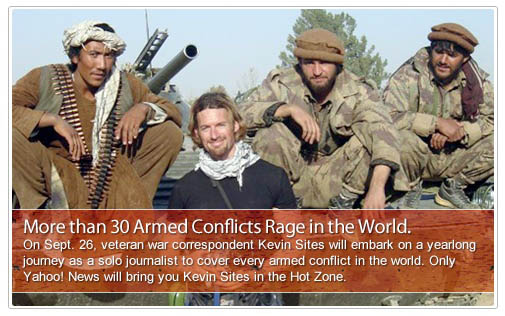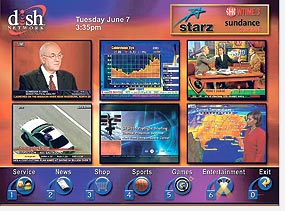On October 10, 2004, I was sitting with my laptop at a cafe in New York City trying to avoid writing a paper for my first-year humanities class. In a moment of despair, I typed “what is the meaning of life?” into an online forum. Fifty thousand hits and two thousand answers later…
That’s the cover copy for David Seaman’s first book “The Real Meaning of Life.,” due out this September. The book is a print version of the impromptu networked book, generated online in response to his question. Aphorisms like “be grease not glue,” and “there is not point to life, and that is exactly what makes it so special,” came from Buddhists, born-again Christians, atheists, waitresses, students, and recovering heart attack patients.
The public platform that the web offers ordinary people, introduces a new way to contemplate this perennial question. Typing “what is the meaning of life?” into wikipedia. yields an extensive post with over 500 edits and a lively discussion page. Here is an excerpt:
The person who asks “What is the meaning of life?” is pondering life’s purpose, in the context “Why are we here?”, or is searching for a justification or goal as in “What should I do with my life”? Thus, we’ve separated the main query into two different questions: one about the objective purpose of life (“Why are we here?”, and the other about subjective purpose in life (“What should I do with my life?”). Many claim that life has an objective purpose, though they differ as to what this purpose is, or where it comes from. Others deny that an objective purpose of anything is possible. Purposes, they argue, are by their very nature purely subjective. Subjective purpose of course varies from person to person. In some ways the quandary is a circular argument, the enquirer is in the midst of life seeking to validate life, or be it the meaning of it.
Books have, traditionally, been vehicles for the contemplation of this circular question. Scripture, scholarly texts, poetry, novels, self-help books, how-to books, grapple with the issue–“why are we here? And what should I do with my life?”–in various ways. It is interesting to see how the question plays out in the interactive space of the web.
Type “what is the meaning of life?” into the Google search engine and it yields 62,300 responses. Including an “Ask Yahoo” page from 1998 in which Juan asks the Yahoo search team to find the meaning of life for him. The letter he gets back reccommends a visit to the Yahoo meaning of life page. It also offers this advice:
Now, if you’re looking for the meaning of your life in particular, then we’re afraid we have to fall back on the somewhat predictable response: “It’s up to you.” Many people try to give lasting meaning to their lives by making the world a better place than when they entered it, either through scientific, philosophical, or artistic contributions. Others try by raising children that can themselves make contributions and preserve important societal and religious values for future generations.
There are also quite a few personal web pages that address the question. One particularly poignent example is JaredStory.com a site by and about Jared High, a young boy who took his own life shortly after a violent beating by a school bully. This heartbreaking site is filled with biblical quotations, audio and video of Jared, information about suicide, bullying, and a transciption of the lawsuit filed by his grieving parents.
Taken together these online “answers” create a wonderful mosaic of humanity striving to know itself and to connect with the universe. The web gives us an opportunity to read this interlinked accumulation of wisdom on a scale never before possible.



 That’s the motto of The Donald’s latest business venture,
That’s the motto of The Donald’s latest business venture, 